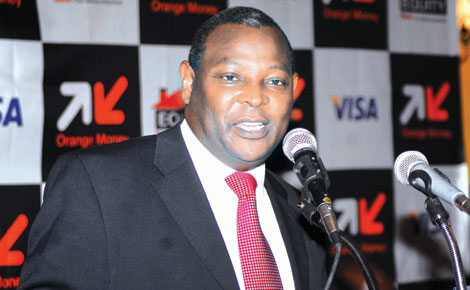×
The Standard e-Paper
Kenya’s Boldest Voice
 |
| Mr James Mwangi, Equity Bank CEO. [PHOTO: FILE/STANDARD] |
By Jackson Okoth
A volatile political environment in South Sudan has slowed down business for Equity Bank Group, forcing the institution to make a Sh700 million provision to cover possible losses from the subsidiary.